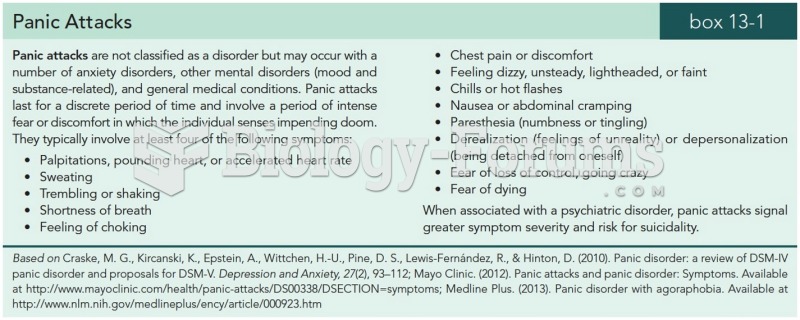|
|
|
Malaria was not eliminated in the United States until 1951. The term eliminated means that no new cases arise in a country for 3 years.
In the United States, an estimated 50 million unnecessary antibiotics are prescribed for viral respiratory infections.
An identified risk factor for osteoporosis is the intake of excessive amounts of vitamin A. Dietary intake of approximately double the recommended daily amount of vitamin A, by women, has been shown to reduce bone mineral density and increase the chances for hip fractures compared with women who consumed the recommended daily amount (or less) of vitamin A.
There are 20 feet of blood vessels in each square inch of human skin.
Always store hazardous household chemicals in their original containers out of reach of children. These include bleach, paint, strippers and products containing turpentine, garden chemicals, oven cleaners, fondue fuels, nail polish, and nail polish remover.
 The terrorist attack of September 11, 2001, is surely a defining event for the cohorts who experienc
The terrorist attack of September 11, 2001, is surely a defining event for the cohorts who experienc
 The gaping hole in the destroyer USS Cole, in the port of Aden, Yemen, was the work of suicide bombe
The gaping hole in the destroyer USS Cole, in the port of Aden, Yemen, was the work of suicide bombe
 Cortical EEG recorded during epileptic attacks. Notice that each trace is characterized by epileptic ...
Cortical EEG recorded during epileptic attacks. Notice that each trace is characterized by epileptic ...




